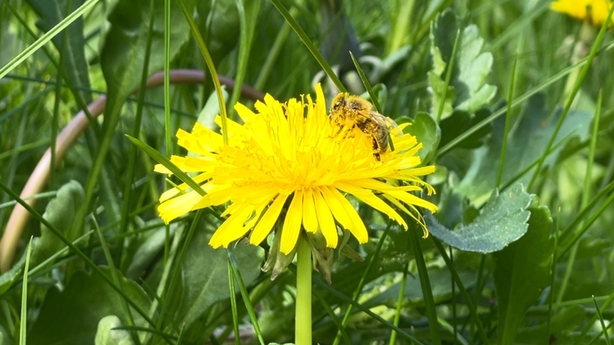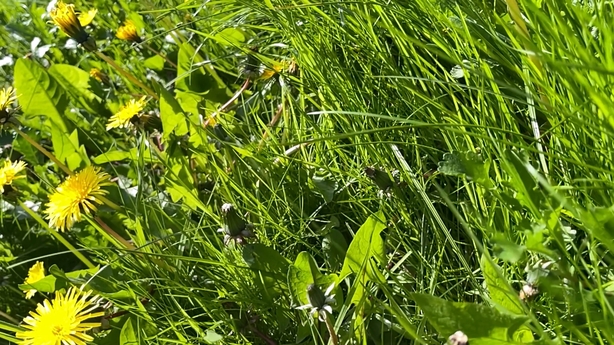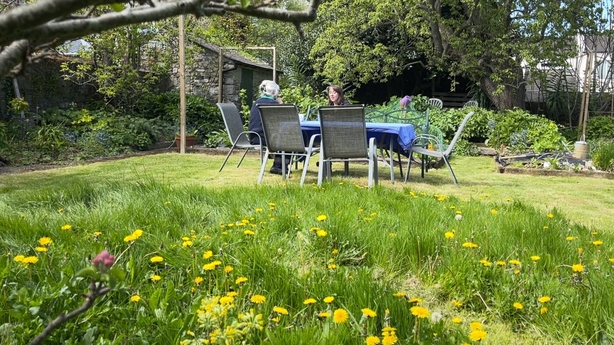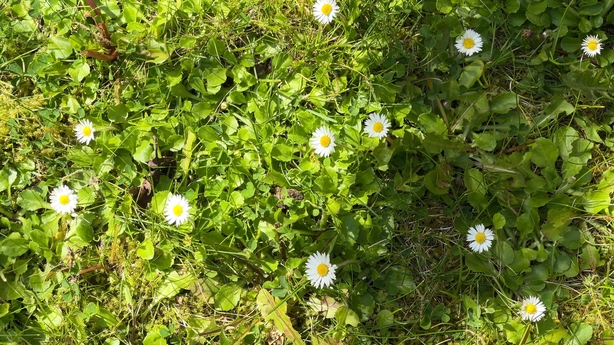It is the first Saturday in May and if you are planning on getting the lawnmower out today, campaigners are hoping that you can be persuaded to leave it tucked away in the shed until next month, at least.
The annual 'No Mow May' campaign is under way, with Biodiversity Ireland among a number of groups urging gardeners to "commit to doing nothing" with their lawns for the month of May and "wait and see what grows".
It says this will help bees and other pollinators, which become active at this time of year.
In Ireland, one third of wild bees are threatened by extinction and the main reason for this is hunger – there is not enough food available in our landscapes to fully support them.
Bees feed on the nectar and pollen on flowers, with common wildflowers like dandelions seen as particularly important.


"Dandelions are the best, which is ironic because they’re so often viewed as weeds," Kate Chandler from the National Biodiversity Data Centre explains.
"We get sent records of bee sightings every year and this includes information on what the bee is seen feeding on. Last year, and in 2021, we had tonnes of sightings of bees on dandelions, more so than any other plant. They are hugely important."
While bee populations are still in decline, Ms Chandler says mowing less does make a difference.
"Local bee populations are increasing where actions are being taken to help them, so that gives us hope because it shows that what people are doing to help is working, so if more people help, we can turn things around and make a real difference."
Amanda Bell’s garden in Dublin has not been fully mown in 20 years. She says she takes a "flexible" approach to her garden, leaving large areas of grass to wildlife and cutting tracks through it so she can access different areas.

"I think it’s a huge psychological leap to get over that idea of ‘neatness’. I think it’s a sense of being in the space and not trying to dominate it.
"We started looking at what was happening if we didn’t intervene and we found a great variety of things, and most are things you are conditioned into thinking you don’t want, like moss which birds use for their nests, and dandelions which are amazing for pollinating insects."
Ms Bell says there is not only "great visual interest" in allowing wildflowers to appear naturally on your lawn, but that helping biodiversity is something she must play a part in "to be a good ancestor".
Beyond the month of May, Biodiversity Ireland is hoping people will mow less regularly, or leave areas in the garden unmown.

"If you look at it from the point of view of a bee, a manicured lawn is a desert, but if you’re a bee flying across a lawn that has grass growing, dandelions popping up, that’s a feast for you and will help you survive," Ms Chandler said.
"What we really want is a network of lawns, gardens, grassy areas taking part in No Mow May that will create a connected habitat for pollinators and other insects and wildlife to feed on."
And if you’re not mowing but seeing no wildflowers, Ms Chandler recommends always removing grass cuttings as they can make soil too fertile for the flowers to appear.
Biodiversity Ireland has information on pollinator-friendly plants and guides to identify what is growing in your garden on its website.







